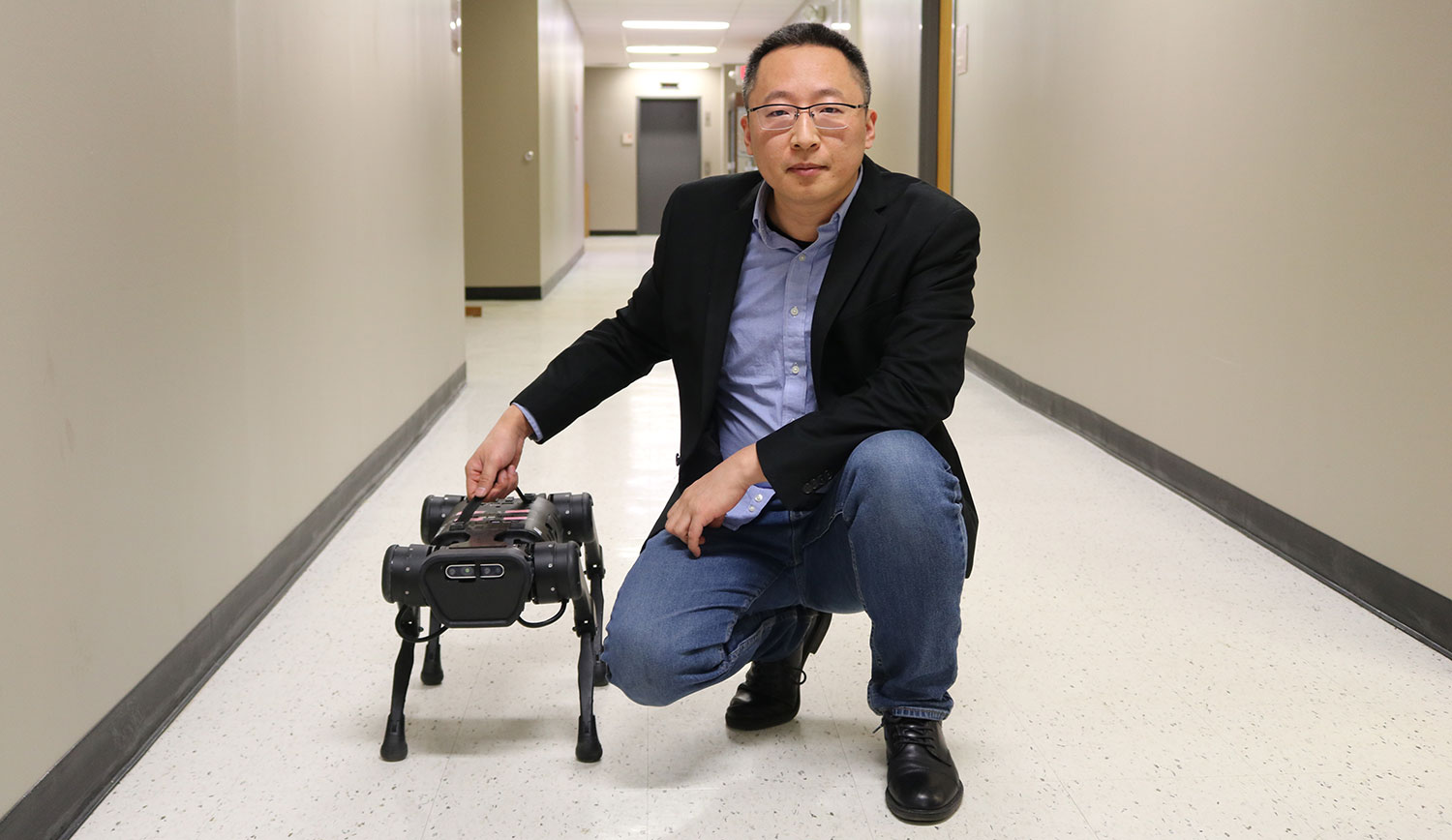Mao lab using quadruped robots to advance deep learning frameworks in autonomous systems

Deep neural networks (DNNs) are powerful computational models inspired by the human brain's neural structure. Because of their capacity to analyze complex data and extract meaningful patterns for decision-making, DNNs hold tremendous promise across many industries where artificial intelligence is becoming more prevalent, including autonomous vehicles, drones and other mobility systems. However, more research is needed to ensure that DNNs provide behaviors and properties that ensure safety.
Yanbing Mao, assistant professor of engineering technology at Wayne State University, leads an international team that includes collaborators from the University of Illinois Urbana-Champaign and the Technical University of Munich. Together they are developing the next generation of deep learning frameworks for vision-guided, safety-critical autonomous systems ― physics-regulated deep reinforcement learning (Phy-DRL). The team, also including researchers from the College of William and Mary and the University of Delaware, received a $1.2 million grant from the National Science Foundation in 2023.
The proposed Phy-DRL technology, which features fast training and verifiable safety, has been successfully implemented in quadruped robots which are utilized across various industries for their versatility and adaptability in navigating diverse environments and traversing challenging terrain. These robots, designed with four legs for stability and mobility, find applications in fields such as search and rescue, agriculture, exploration and logistics.
“The adaptability of quadruped robots continues to expand their role in various industries, showcasing their potential in enhancing efficiency and safety across diverse applications,” said Mao.
The team’s results over the last year of research have been accepted at top-tier conferences ― including the 2024 International Conference on Learning Representations and the 2023 IEEE Conference on Decision and Control ― and such journals as IEEE Transactions on Neural Networks and Learning Systems.
Next steps include developing a closed-loop perceptual learning framework and equipping the quadruped robot with self-mapping and self-planning abilities, which will enable it to perform search and rescue tasks in deep forests and other remote areas.
The grant number for this NSF award is 2311084.